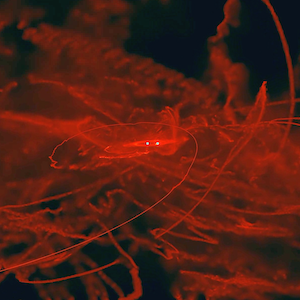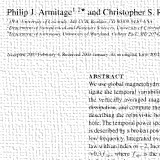THE SHORT VERSION is that my group works to understand the physics of accretion phenomena, the formation and evolution of planetary systems, and the astrophysics of black holes.

Stellar tidal disruption (Coughlin et al. 2016)
Protoplanetary disks
Unraveling the environment within which planet formation occurs requires modeling the coupling
between magnetic fields, self-gravity and dust physics within protoplanetary disks. Over the last few years, in work led by Jake Simon, we have been able, for the first time, to model the non-ideal MHD physics of protoplanetary disks using nominally realistic values for the strength of Ohmic and ambipolar diffusion, and the Hall effect. These simulations support a new paradigm for protoplanetary accretion, in which disk winds, ambipolar diffusion, and the Hall effect determine much of what happens. We have developed detailed predictions for how such models can be tested - using resolved ALMA measurements of turbulent line broadening - and are working with leading observational groups to perform such tests on the nearest, best-observed disk systems.
Transients and black hole accretion
High energy accretion systems in which the accretion rate is time variable have long been understood to yield
unique information on the physics of accretion disks. We have been working on models that link the microphysics
of accretion disks (where processes such as the magnetorotational instability are reasonably well-understood) to
observations of disk variability. For black hole X-ray binaries, we have argued that state transitions arise as a
consequence of the evolution of the net magnetic field near the hole, while for Be/X-ray binaries we trace
different types of outburst to the dynamics of Kozai resonance in warped disks. We have recently started a
project to model the properties of transients from stellar tidal disruption events in galactic nuclei,
including those harboring binary black holes.
Extrasolar planet formation
My work on extrasolar planet formation focuses on understanding from first principles the physical processes
that ultimately give rise to the diversity of observed systems. We are working to understand - via very large
scale multi-fluid simulations - how instabilities in coupled mixtures of dust and gas lead to gravitational
collapse and the formation of the first planetesimals. With further development, there are prospects to
test these theoretical ideas against observations of the mass function and binarity in the Kuiper Belt.
Our results support a novel model in which planetesimal formation may be strongly spatially inhomogeneous,
and we are working to understand the dynamical consequences for the formation of close-in Kepler planetary
systems. Using dynamical simulations appropriate to a later stage, we have argued for a close dynamical
link between extrasolar terrestrial planet formation, giant planet scattering, and debris disk depletion.
Computational astrophysics
In recent years, we have focused our code development efforts on implementing the physics relevant
to the above problems (including special relativistic hydrodynamics, ambipolar diffusion, and PM particle
self-gravity) within the ATHENA MHD code, where we have demonstrated scalability out to 100,000 processor
cores. We are also using other schemes - including SPH and high-order finite difference methods - when the
problem demands.
From the archives
The older work I'm most pleased with

Turbulence and angular momentum transport in a global accretion disk simulation - the first global calculations of magentized disk accretion
Accretion during the merger of supermassive black holes - a prediction for electromagnetic counterparts to gravitational-wave events
Investigating fragmentation conditions in self-gravitating accretion discs - the standard answer to the question of when disks fragment
Episodic accretion in magnetically layered protoplanetary discs - a model explaining outbursts in protostellar disks as a consequence of competing angular momentum transport processes